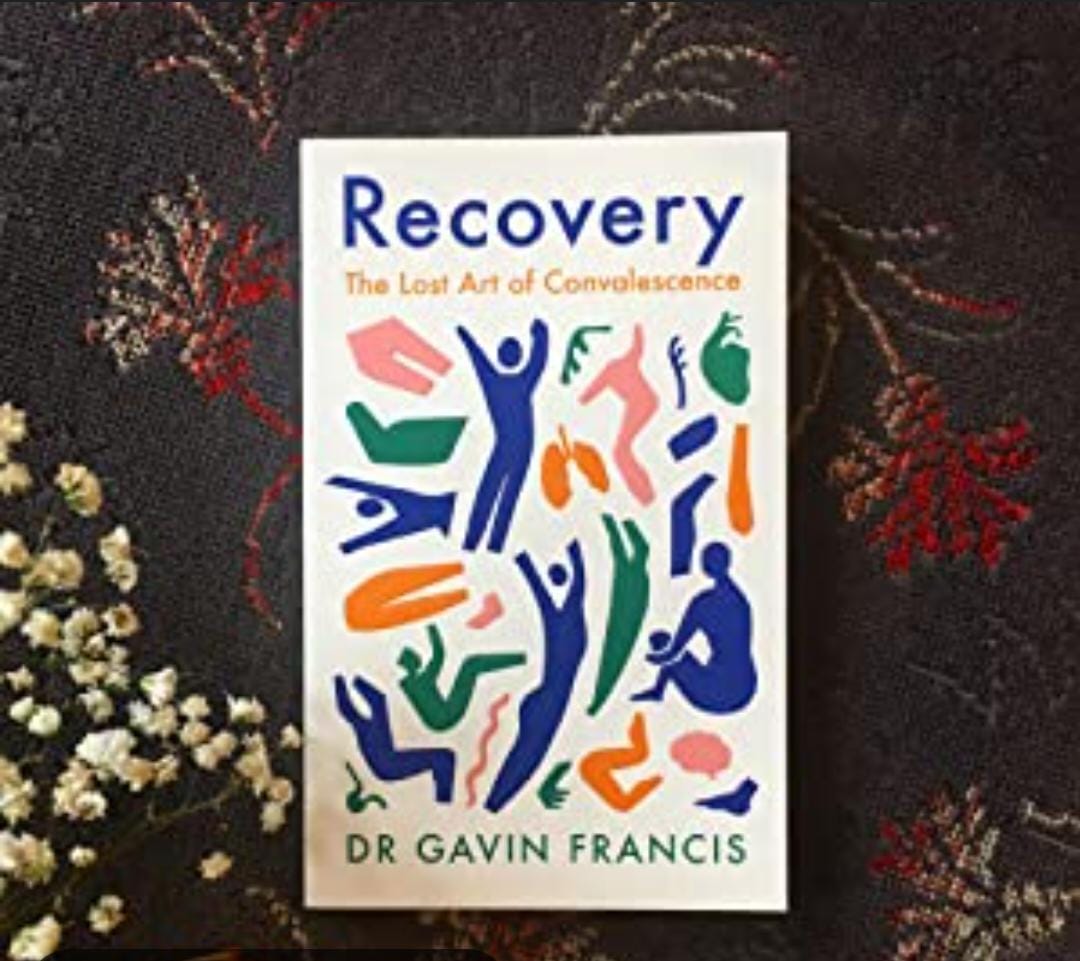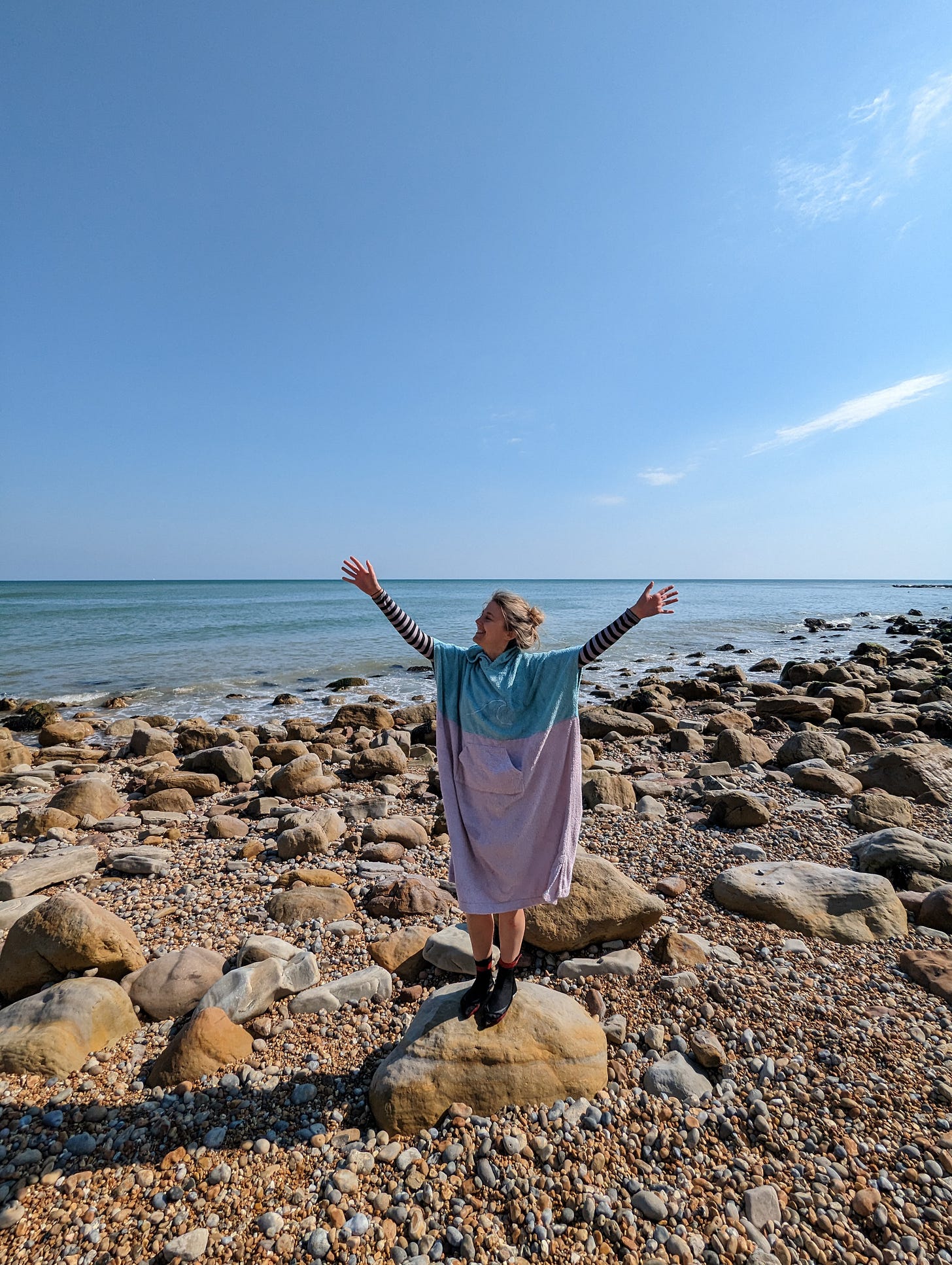
It took a small patch of oil on the road, invisible to the eye, to bring him down. I knew something was wrong when I picked up the phone. His breathing was all funny. His first words to me: "Don't panic." I did, of course, dashing back to (and around) our little flat, madly packing some clothes and reviving snacks, then throwing it all in the car and driving as fast as I safely could to find him.
As I turned the offending corner of the lane – the main cycling route out of south London, I’m told – there was Z, waiting on the verge with a kindly Kiwi gentleman called Gordon who’d stopped to keep him company until I arrived. Z was pale, from the shock as much as the pain, I think, some mangled handlebar tape the only visible damage to his bike.
Not so his collarbone. An X-ray at the hospital in Farnborough revealed just how badly it was broken. Three ribs, too, not spotted initially. Surgery was expedited and within a week, Z was part robot, 9cm of titanium built into his shoulder to help his right clavicle knit back together. And while it did: no running for two months, no cycling or swimming for three, maybe four, and – cruellest of blows, at least to him – absolutely no surfing until the end of summer.
That was February, and the weeks that followed were the most testing of his recovery, and, if I'm honest, our relationship. Sport is not just a source of fitness and fulfilment for Z, but the stuff by which he measures his weeks and days. I’m still bemused he’s ended up with someone as naturally unsporty as me (and vice versa). Six months on the sofa would be no great hardship in my life, but I know it felt like a sentence to him; just another pending to add to our list.
It could have been worse, obviously. It can always be worse. He might have been mown down by a speeding car as he lay there winded in the lane, or hit by a bus right here in London. It could have been a head injury, not a relatively routine shoulder one. Monday mornings are clavicle central for shoulder surgeons, apparently, thanks to the weekend army of Rapha gilets and Le Col Lycra.
But as GP Gavin Francis writes in Recovery: The Lost Art of Convalescence, which I picked up in the Wellcome bookshop last week, there is no “hierarchy of suffering” in these matters. A misfortune that floors one person, another may bounce back from with surprising ease, and this goes for recovery from work burnout or heartbreak as much as physical injury or illness.
In this pocket-sized but big-hearted book, Dr Francis taps his theme from both ends of the stethoscope. Recovery, though generally a doctor’s main goal for their patient, is largely absent from the index of medical textbooks, he notes, even though it’s been a focus of nursing since the days of Florence Nightingale. And it follows that in our resource-poor NHS, the space – and, crucially, time – for convalescence has been squeezed, too (for bed rest, you need beds).
But time is what recovery demands, beyond all meds or rehab. Recalling a childhood bicycle fall that laid him low for an entire summer holiday, Dr Francis reflects: “The flow of my life had been stilled, but it was that very stillness that gave me the opportunity to heal.” Recovery, often a slow process, is nevertheless an act, he adds, and “actions need us to be present, to engage and to give of ourselves.”
Rather than a destination in and of itself, recovery is better thought of as something dynamic, just like life - a direction of travel that we can be guided towards. Anyone who is moving in the direction of more dignity, understanding, and in accord with their own wishes, is in some sense on a journey of recovery.
For Z, recovery is a project, marked week by week by the physio he’s given and month by month by the freedoms he reclaims. His surgeon Toby, an ex-university rower with a Barbour on the back of his office door, said as much at the first assessment, when he clearly identified his patient as someone for whom exercise goes beyond the physical to the metaphysical. I have therapy. Z has Strava! But no one is better suited to a project than my boyfriend. This, a man who does the physio, all 25 minutes of it, daily. IKR.
Three months in, he’s making great progress but, as mentioned, those first weeks were the most challenging. His spirits were broken, as well as his bones, and this was compounded by the cocktail of drugs and a nasty post-op infection that caused almost as much discomfort as the operation itself.
Not to mention the timing. You see, I was also in recovery, of sorts. In January I left my all-consuming journalism job after four-and-a-half years, a job I mostly loved until it didn’t love me back. I’ll write of this another time – it’s a large part of current life, pending – but for now, I’ll just say the final exit was bruising and by mid-February, I was four weeks into a much needed career break, actively encouraged by my Z.
After his fall, we temporarily decamped from our one-bed flat to his sister’s place (generously bestowed while she and her husband were on honeymoon), the luxury of separate bedrooms reducing the chance of me clumsily undoing all Toby’s handiwork. I did my best Florence N, though in retrospect, rather too heavy on the tea and sympathy, when some jokes and gentle ribbing might have lightened the mood.
We binge-watched Welcome to Wrexham, parting ways at bedtime like the Queen and Prince Philip in season one of The Crown. And by day we danced around each other as best we could, only without any actual dancing on account of Z’s sling.
Even with the hindsight of two months, I understand better now that recovery from injury is as much a psychological challenge as a physical one, just as Dr Francis discusses in his book. Conversely, my own recuperation, fuelled mainly by reading, writing and sleep, has also been helped by getting my steps in, sigh. Both of us needed to slow down. And being forced into a shared convalescence, while painful at times for two people as independent as we are, has done us more good than we know.
My internal bruises are gradually healing in tandem with Z’s collarbone, which puts me in mind of Stephen Dunn’s poem, Each From Different Heights, even though it concerns recovery in a different context. I can’t reprint it in full – you can read it here or in the brilliant Staying Alive anthology from Bloodaxe – but it's a belter, backing up Dr Francis's belief that every blow to our body or soul needs acknowledging, no matter its relative size, if it's to mend.
Recovery takes time, yes, but invariably you learn about yourself while you wait. Two weekends ago, Z and I went for our first ever joint run, his return to pounding pavements dovetailing with my ongoing Couch to 5K. It wasn't easy or particularly pretty (on my part) and I laughed that even briefly, we looked like one of those couples. But it felt right. Sometimes meeting in the middle is just what the doctor ordered.
And the big bruise
from the longer fall looked perfectly white
in a few years.
That astounded me most of all.
While I wait this week
I’m still reeling: From seeing Steve McQueen’s Grenfell in its final week at the Serpentine. I will gather my thoughts in a future newsletter, but I was relieved to read that the artwork will be passing into the joint guardianship of the Tate and Museum of London, so it will continue to bear witness.
I'm enjoying: Being in an office. I'm a month or so into a new freelance project for an old editor of mine and I'd forgotten how much I thrive off the small talk and tea rounds. Even the commute, to an area of London I don’t know so well. I've been spending my lunch hours mapping it out, street by street.
I’m back swimming: At the lido (and, yesterday, the seaside). I actually headed down to Brockwell straight after sending the last newsletter, so thank you for making me accountable. Any thanks, too, for all your messages and ideas for Life, Pending, even when I miss a week – they keep me afloat!





Thank you for sharing. Sending you so much love x